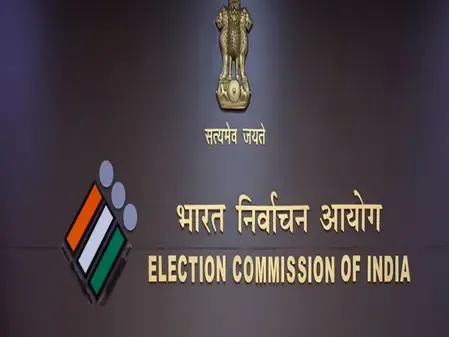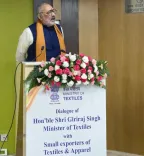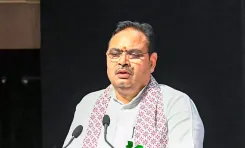Will ECI's Meeting Today Shape the National SIR Process?

Synopsis
Key Takeaways
- Meeting of ECI with CEOs from states and UTs.
- Focus on nationwide implementation of SIR process.
- Aims to enhance voter list accuracy and transparency.
- Political controversies raised regarding voter removals.
- Upcoming elections in key states.
New Delhi, Sep 10 (NationPress) The Election Commission of India (ECI) is poised to conduct a significant meeting today with Chief Electoral Officers (CEOs) from all states and Union Territories, focusing on the nationwide implementation of the Special Intensive Revision (SIR) process for electoral rolls.
This meeting, chaired by Chief Election Commissioner Gyanesh Kumar alongside other senior election officials, is set to occur in the capital. It will address various matters concerning election readiness, accuracy of voter lists, and transparency, with a primary emphasis on the national rollout of the SIR process.
The SIR process is designed to refine the electoral roll revision by detecting and eliminating duplicate or deceased voters, while also ensuring the prompt inclusion of new eligible voters. The ECI anticipates that this initiative will bolster transparency, enhance the accuracy of voter databases, and fortify the integrity of the electoral process.
The decision to deliberate on a nationwide implementation comes after the recent launch of the SIR process in Bihar, which has triggered political unrest.
Opposition parties, including the RJD, Congress, CPI, CPM, TMC, and SP, have accused the Commission of bias by allegedly removing a considerable number of voters, particularly from marginalized communities. This controversy has intensified political tensions in the state heading towards elections.
With significant elections approaching next year in West Bengal, Assam, Tamil Nadu, Kerala, and Puducherry, the ECI is seemingly committed to standardizing the revision process across all states to prevent inconsistencies and allegations of partisanship.
Internal sources from the Commission indicate that the meeting will also cover feedback from Bihar's initiative and contemplate modifications to ensure fairness, transparency, and consistency in the SIR process moving forward.







